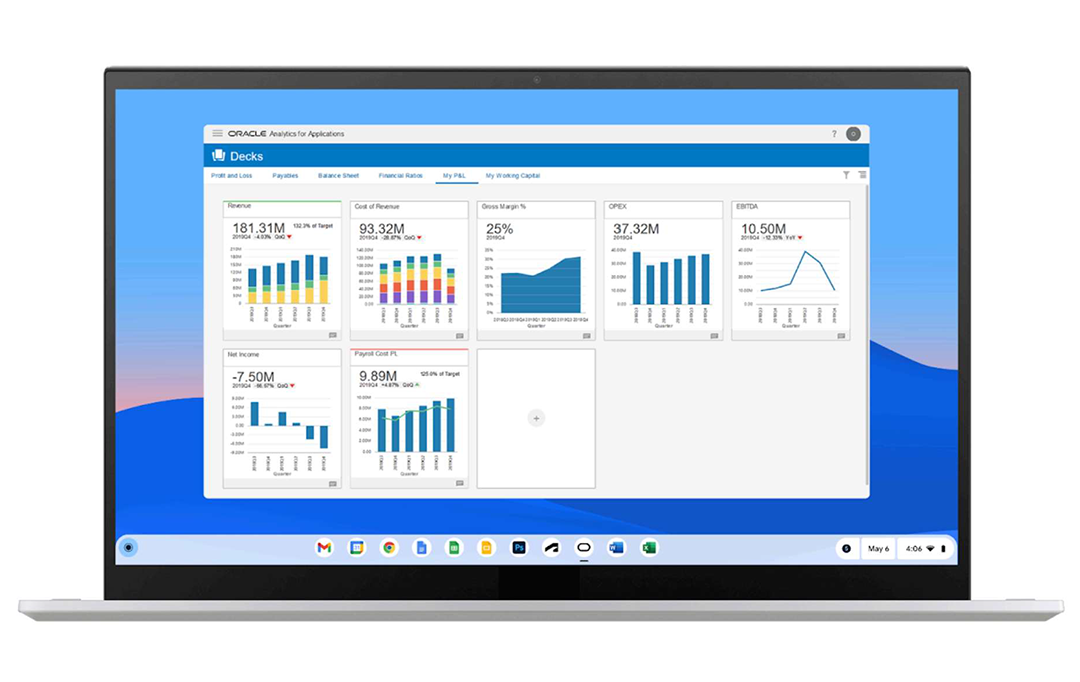 CLOUD
CLOUD
 CLOUD
CLOUD
 CLOUD
CLOUD
Google LLC today announced that it has acquired Cameyo Inc., a virtual application delivery platform for remote work, which will bring the company’s expertise on providing cloud desktops for workers in-house.
Google’s ChromeOS team and Cameyo did not share any details about the terms or value of the deal.
Cameyo’s platform permits the delivery of different applications from various platforms via the cloud to any device, including Windows, Linux, software-as-a-service and web apps. That’s useful because adopting an operating system such as ChromeOS means giving up access to Windows applications, but Cameyo allows enterprise information technology teams to stream them to desktops and laptops running the new OS.
Using the platform, organizations can easily deliver cloud desktops to their own self-hosted environments or on fully managed infrastructure. Using its solution, companies can deliver legacy apps using what is called virtual app delivery, or VAD, in contrast to virtual desktop infrastructure, which Cameyo says is cumbersome and problematic for app delivery. Using this method, apps are kept synchronized across an organization stay up to date, improve security and improve user experience.
Cameyo became a certified Chrome Enterprise Recommended partner in early 2022 and teamed up with Google last year. As part of last year’s partnership Cameyo can provide fill local file integration, the ability to deliver virtual apps as progressive web apps and use enhanced clipboard support. These features allow users direct access to data and files in secure, familiar ways within their virtual apps.
“The addition of Cameyo to Google is a game-changer,” said Naveen Viswanatha, product lead for ChromeOS commercial products. “Their innovative technology is a catalyst for digital transformation, enabling organizations to modernize their legacy applications and embrace the full potential of ChromeOS. Following our partnership over the past few years, we’re looking forward to working more closely with the team to support more customers in their transition to deploy ChromeOS.”
According to a Forrester research report commissioned by Google, out of 625 respondents in IT infrastructure and end-user computing, more than 80% of the respondents saw a future where most of their apps will live in the cloud. Many cited the fact that embracing web- and cloud-based applications now would give them an advantage in digital transformation, especially in security, ease of use and lower costs. However, the same study also showed that 50% of applications remain client-based.
For ChromeOS users, this partnership will mean increased integration and greater ease of access to critical legacy applications, without complex setups, installations or setups. For IT administrators, it means more control and fewer nuts and bolts to keep track of when it comes to application management, which means fewer security risks when it comes to end users.
Cameyo’s solution has been deployed across numerous industries by IT teams, including in healthcare management by Texas-based Community Hospital Corporation, Scandinavian seafood distributor Nordward and American electronics manufacturing services provider Samina Corp.
“Deploying apps with ChromeOS and Cameyo is remarkably simple. Session management, load balancing, failover — it’s all handled by Cameyo, so all we had to focus on was the apps we wanted to publish,” said Mario Zúñiga, IT director at Samina. “It was very easy to get set up, and ongoing management is a breeze — especially when compared to traditional virtual desktop approaches. Cameyo is a key element to enabling our long-term Chrome Enterprise strategy.”
Support our mission to keep content open and free by engaging with theCUBE community. Join theCUBE’s Alumni Trust Network, where technology leaders connect, share intelligence and create opportunities.
Founded by tech visionaries John Furrier and Dave Vellante, SiliconANGLE Media has built a dynamic ecosystem of industry-leading digital media brands that reach 15+ million elite tech professionals. Our new proprietary theCUBE AI Video Cloud is breaking ground in audience interaction, leveraging theCUBEai.com neural network to help technology companies make data-driven decisions and stay at the forefront of industry conversations.